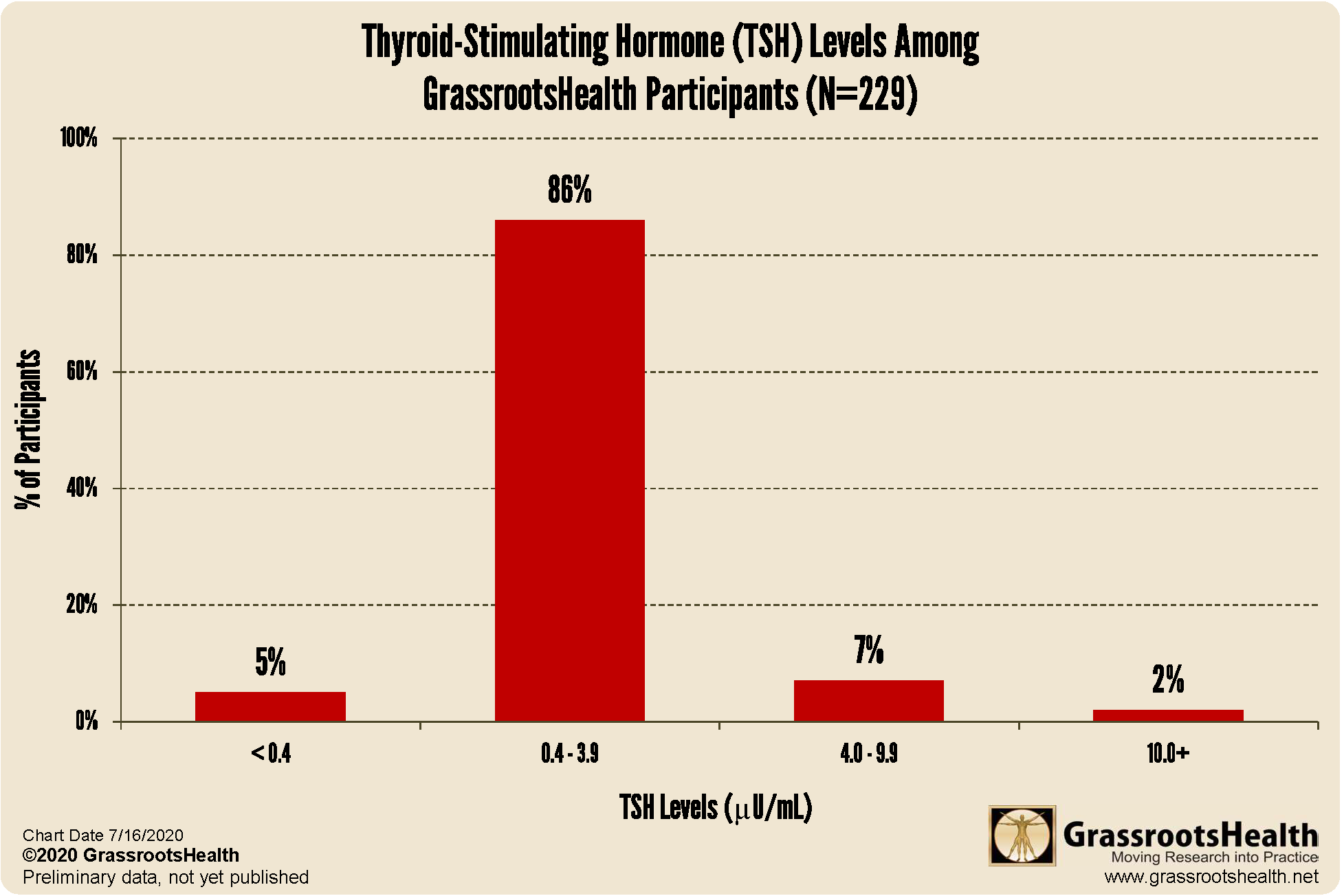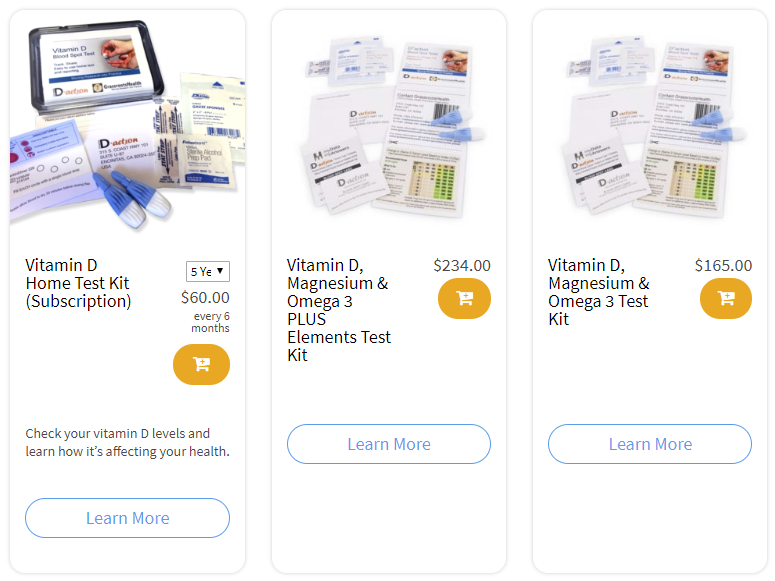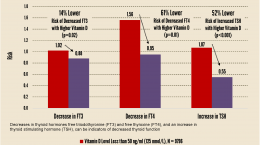Published on July 21, 2020
Thyroid-stimulating hormone (TSH) is a hormone produced by the pituitary gland that stimulates the production of hormones from the thyroid that are essential to many bodily functions such as metabolism, brain development, bone health, muscle control, heart rate, and body temperature.
 Thyroid dysfunction is under-diagnosed with some population studies indicating that up to 10% of Americans may have thyroid dysfunction. A TSH test can indicate whether your thyroid gland is working normally, or if it’s overactive (hyperthyroidism) or underactive (hypothyroidism). An overactive thyroid gland can produce symptoms such as irritability, diarrhea, heart palpitations, heat sensitivity, and insomnia while an underactive thyroid gland can produce fatigue, unexplained weight gain, infertility, and mood swings. A TSH test can detect thyroid dysfunction before you have any symptoms.
Thyroid dysfunction is under-diagnosed with some population studies indicating that up to 10% of Americans may have thyroid dysfunction. A TSH test can indicate whether your thyroid gland is working normally, or if it’s overactive (hyperthyroidism) or underactive (hypothyroidism). An overactive thyroid gland can produce symptoms such as irritability, diarrhea, heart palpitations, heat sensitivity, and insomnia while an underactive thyroid gland can produce fatigue, unexplained weight gain, infertility, and mood swings. A TSH test can detect thyroid dysfunction before you have any symptoms.
The normal TSH range depends on a person’s age and pregnancy status, with levels tending to be higher as a person gets older and lower during pregnancy. According to the American Thyroid Association, doctors generally consider levels between 0.4 and 4.0 µU/mL to be within the normal range with levels between 0.0 and 0.4 µU/mL indicating hyperthyroidism, levels between 4.0 and 10.0 µU/mL indicating mild hypothyroidism, and levels 10 µU/mL or higher indicating hypothyroidism. However, some experts consider normal levels to be between 0.5 and 2.0-2.5 µU/mL.
Additional tests may be recommended if TSH levels are out of range to give a more definitive diagnosis of thyroid disease or dysfunction. The treatment and diagnosis must be undertaken with a medical doctor or other primary health care provider.
What are the TSH levels among GrassrootsHealth Participants?
GrassrootsHealth offers a TSH dried blood spot test. Among the 229 participants who have tested their TSH levels, the average level was 1.5 µU/mL. As you can see from the chart below, 86% of these participants have levels in the normal range, 5% have levels in the range indicating possible hyperthyroidism, 7% have levels in the range indicating possible mild hypothyroidism, and 2% have levels indicating possible hypothyroidism.
Have you measured your TSH level?
Do you know if your thyroid is working as it should be? Measuring your level of TSH can give you a better idea of overall thyroid health, or if an imbalance exists, if further testing may be necessary. Check your TSH level today!
Are You Getting Enough Vitamin D to Help Yourself?
We’re in a time of great crisis that could be greatly affected by making sure you and everyone you know has a serum level of at least 40 ng/ml. Help us help you.
Do you know what your vitamin D level is? Be sure to test today to find out, and take steps to keep it within a target of 40-60 ng/ml or 100-150 nmol/L! Give your immune system the nutrients it needs to support a healthy you and protect yourself from unnecessary diseases.
GrassrootsHealth Nutrient Research Institute is preparing to do a Community RCT with the use of our myData-myAnswers nutrient health system that over 15,000 people are already using for their health. We will demonstrate how one can use the Nutrient Research Model established by Dr. Robert Heaney to establish the effect of vitamin D serum levels of at least 40 ng/ml (100 nmol/L) on risk reduction with different ethnicities in the population. Please let us know if you’re interested in helping sponsor this project.
CLICK HERE for updates and new information about the project.
Through GrassrootsHealth Nutrient Research Institute, you can also test your essential elements magnesium, copper, zinc and selenium, toxins such as lead, mercury and cadmium, as well as your omega-3 levels, inflammation levels and thyroid stimulating hormone (TSH) level. Find out your levels today! Log on to the test selection page (click the link below) to get your tests and see for yourself if your levels can be improved.
Make sure you track your results before and after, about every 6 months!
Click Here to Access the Test Page
How can I track my nutrient intake and levels over time?
To help you track your supplement use and nutrient levels, GrassrootsHealth has created the Personal Health Nutrient Decision System called
For each specific supplement, you can track what days you take it, how much, and many other details. This will help you know your true supplemental intake and what patterns of use work for you to reach and maintain optimum nutrient levels. Check it out today!









